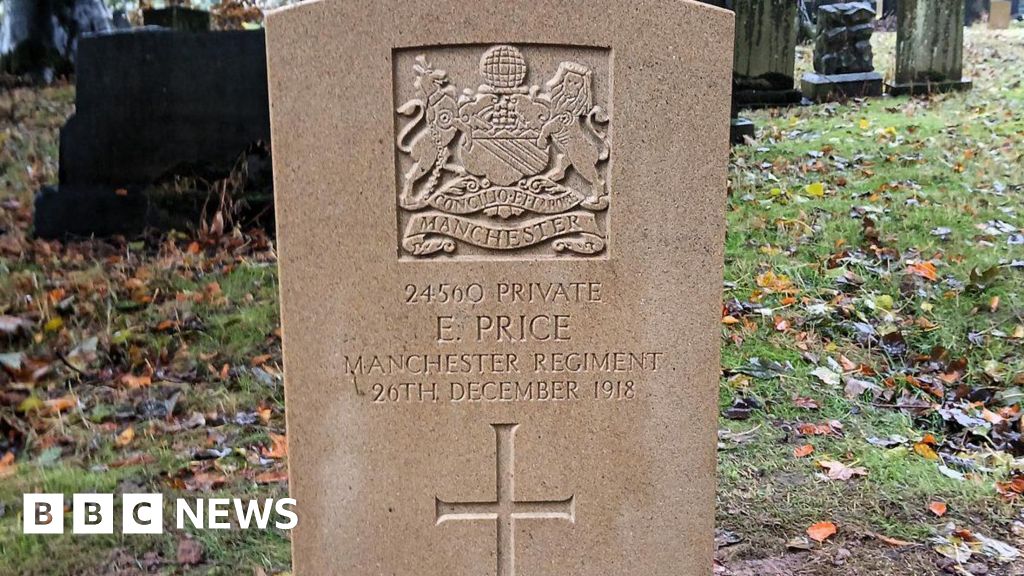When an Italian magazine conducted a poll to establish whose shoes its male readership would most like to fill, there were more likely candidates than Flavio Briatore, the Renault Formula One team boss.
It was 2005, and Italy was riding high. The legendary tenor Luciano Pavarotti was performing a global farewell tour. Pop star Eros Ramazzotti stared out from billboards and magazine covers after his tenth studio album went platinum within a month. And in football, national team captain Fabio Cannavaro was treading a path that would culminate, the following summer, with the Azzurri’s fourth World Cup victory.
Yet the response of the magazine voter’s was unequivocal: 67% of Italian men plumped for Briatore, a flamboyant entrepreneur who rose from humble beginnings in Verzuolo, a small medieval town 41 miles south-west of Turin, to become the undisputed king of the F1 paddock and a figure of international renown.
Rich, rakish and debonair, it was not hard to see why Briatore, now 74 and still a living embodiment of what it means to work hard and play hard, so captured the Italian male imagination.
He was the man who had launched the F1 careers of Michael Schumacher and Fernando Alonso, winning four world drivers’ championships and three constructors’ world championships along the way.
He had dabbled in football, almost buying Chelsea together with fellow F1 supremo Bernie Ecclestone before the pair were pipped to the post by Roman Abramovich, ands later becoming part-owner and chairman of Queens Park Rangers.
He was the founder of Billionaire, a nightclub and restaurant in Porto Cervo in northern Sardinia that – as the name all but demanded – became a go-to destination for A-listers and oligarchs.
A luxury fashion housewith the same moniker followed (since sold to the German fashion designer Philipp Plein at a cost reputedly in the tens of millions) while further Billionaire dining and entertainment venues have opened in Dubai and Monte-Carlo. The latest addition to the brand, based at the Grand Hotel des Bains Kempinski in St Moritz, the Swiss winter playground of the rich and famous, opened its doors on Friday.
Flavio Briatore is seen with a group of models at a cocktail reception at Monte Carlo’s Hotel de Paris in 2008. Briatore recently returned to Formula One as special adviser to French team Alpine

Briatore poses with supermodel Naomi Campbell, his former fiancée, at the Billionaire Club Sunset Lounge in May 2014. The pair dated for four years, breaking up in 2002

Briatore is seen with Heidi Klum, the mother of his first child, at a GQ event at the Royal Opera House in London in 2003
Briatore’s standing among his Italian countrymen no doubt benefited too from his reputation as a serial romancer of supermodels, actresses and media personalities.
By the time the magazine poll was conducted, he had been engaged to Naomi Campbell, 20 years his junior, and had a daughter with the (yet younger) supermodel Heidi Klum. He had also been linked with a string of other models including Emma Heming – the future wife of Bruce Willis – and Kat Mack.
‘I don’t know how to define love,’ Briatore told the Italian newspaper La Repubblica. ‘I don’t think there are lights that go on and off to let you know you’re in love. It’s a creative thing, it’s very personal.
‘I often change women because I don’t like to waste time; when I feel like a relationship is over, I don’t last long. You only have one life, you never know when you’re going to die.’
Briatore has done more than most to make a go of it. Reported dalliances followed with Nadine Smith, an American model, Annemarie Warnkross, a German TV presenter, and former Miss Poland winner Marzena Cieślik. It was a roll call that would make even the likes of Leonardo DiCaprio blush- not that Briatore was keeping score.

Briatore married Elisabetta Gregoraci, an Italian underwear model and TV personality, in Rome in the summer of 2008. The couple, since divorced, had a son, Falco, less than two years later

Gregoraci and Briatore remain on the best of terms, with their enduring chemistry sparking speculation about a possible reunion after they appeared on Italian TV together recently

Briatore subsequently ruled out the prospect of the pair remarrying – ‘No wedding in sight,’ he told Italian weekly news magazine Oggi – but their mutual affection is evident
‘I never count, it’s not right,’ he told Vogue. ‘I believe every time you go out with somebody, you go out because you are looking for something.
‘Always the intention is good. If it’s not successful, maybe it’s destiny.’
More successful than most was Briatore’s relationship with Elisabetta Gregoraci, a southern Italian underwear model and TV personality.
The couple married in Rome in the summer of 2008 and had a son, Falco, less than two years later. They divorced in early 2018.
Little about Briatore’s upbringing marked him out as a future Formula One playboy. Born into a family of teachers – his parents, Giacomo and Caterina, both taught, as did his grandparents and sister – it did not take the young Flavio long to decide his destiny lay elsewhere.
As his parents struggled to pay for schooling, Briatore dreamed of a life beyond the mountains of Montaldo di Mondovi, the small town in Piedmont’s Cuneo province in which he spent his teenage years. A life that included a big house, a car, shoes that would fit in the here and now rather than ones he would grow into.
His sense of yearning earned him the nickname ‘Tribula’, local dialect for a shifting, restive individual determined to change their lot.
Six decades on, it has lost none of its power, for variety – in life, love and business – has been a recurring motif in Briatore’s life.
‘Even as a child in those mountains I felt a certain unease, I felt that I was rootless,’ said Briatore.
‘When they asked me what I wanted to be when I grew up, whether a firefighter, a lawyer or a notary, I answered that above all else I wanted to get away from there, from those hardships, from those toils, from those sacrifices.’
It was a journey that would take him down many byways. With an eye to the main chance, he became a ski instructor (‘I didn’t even really like skiing,’ said Briatore, ‘but all girls fancy the ski instructor, so it made sense’).

Former Miss Poland winner Marzena Cieślik, seen here at a ball in Melbourne on day two of the 2007 Australian Grand Prix, is among Briatore’s exes

He opened a restaurant; it folded. He went door-to-door selling insurance, working 17 hours a day, seven days a week, often in 30-degree heat (‘I was the best at it,’ he would later recall, ‘because I worked hard to make that happen’).
Still searching for his niche, Briatore became the business assistant of Attilio Dutto, owner of the Paramatti Vernici paint manufacturing company, who died in mysterious circumstances following a car-bomb attack in 1979.
When the firm subsequently went under, Briatore was charged with fraud and received a four-and-a-half year prison sentence that he avoided only by absconding to the Virgin Islands; granted amnesty, he later returned to Italy, making for Milan.
So far, so inauspicious. Yet this ragtag bunch of early experiences were united by a common theme, one that would play a defining role in Briatore’s success: resilience, adaptability, an ability to roll with life’s punches.
It was in Milan, where he worked at the Italian stock exchange, that Briatore first met Luciano Benetton, the Italian business mogul.
Benetton enlisted Briatore’s services to help his eponymous fashion brand crack the US market and, as the label became a global phenomenon, the only bars Briatore needed to worry about were of the luxury, cocktail-serving variety. He was on his way.


Heidi Klum loves to see her daughter ‘re-wearing’ her outfits. The 51-year-old supermodel admitted there is a sense of pride when her 20-year-old daughter Leni brings new life to iconic items from the past

Klum was roasted for posing in lingerie with her oldest daughter earlier this year
‘Without Benetton, there would be no Briatore,’ he would later reflect of his association with the man who went on to introduce him to Formula One.
‘Benetton is part of my family. I’m very close with Luciano. I recognise all the time that without him, I would be nothing.’
Briatore’s self-professed ignorance about Formula One did not prevent him from thriving in the sport, first as director of the fledgling Benetton team that won the world drivers’ title in 1994 and 1995, and later with Renault, which purchased Benetton in 2000 and went on to claim the drivers’ championship in 2005 and 2006.
All of those victories were underpinned by Briatore’s instinctive ability to identify a winner.
He signed Schumacher for Benetton in 1991, stealing him from under the nose of rival Eddie Jordan, and although the German’s departure for Ferrari in1996 precipitated Briatore’s own downfall, the Italian bounced back by recruiting Alonso for Renault in 2002.
While such episodes offered further evidence of Briatore’s ability to bounce back from mishap, even he looked to have crossed the Rubicon after receiving a lifetime ban from motor sport for his alleged role in the ‘Crashgate’ race fixing scandal of 2008.

Briatore and Campbell chat with Red Bull team principal Christian Horner, left, at September’s Azerbaijan Grand Prix, following Briatore’s return to F1 with French team Alpine

Briatore is seen with Campbell, his former fiancée, and retired tennis star Maria Sharapova, right, at the Abu Dhabi Grand Prix in November 2023
The controversy unfolded after a deliberate crash by Renault driver Nelson Piquet Jr at the inaugural Singapore Grand Prix, which resulted in the deployment of a safety car and allowed Alonso to win the race.
But Briatore, who always maintained his innocence, successfully appealed against the ruling before reaching an out-of-court settlement with the Federation Internationale de l’Automobile, whom he sued for damages.
This summer, he returned to the sport in an advisory role for the struggling Alpine F1 team. He was also romantically linked with Gregoraci, his former wife, amid suggestions – which he has denied – that the couple have rekindled their relationship.
‘You only have one life,’ Briatore once reflected. ‘It’s like a movie, and you are part of the movie, and if you are a part of the movie, it’s better to play the protagonist.
‘When you watch Ben-Hur you don’t notice the guy running behind the chariot, you see Ben-Hur, and I wanted to play Ben-Hur, not the guy that people saw running behind the chariot for two seconds.’
In life and in love, Briatore leads from the front.








